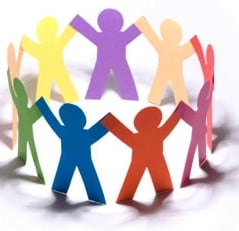Group Therapy
from $ 200 per hour
Group therapy can help people improve their mental health. It involves at least one mental health professional and two or more people in therapy. Many use it to address a specific mental health concern. The group dynamic often helps people feel supported as they move forward. Whether your goal is growth, improving social skills, or something else, group therapy could help you achieve it.
Group therapy can help people work toward and meet many types of goals. Sometimes, a therapist might suggest group therapy over other forms of treatment. This could be because it is a good fit for that individual or better for treating their concern. Therapy groups can help people whose mental health makes it difficult to get through daily life. Others may not have pressing concerns but still wish for training or support. They can also benefit from group therapy. Some of the topics addressed in group therapy include addiction, domestic violence or abuse, divorce, anxiety, communication issues, parenting, food and eating issues, anger management, grief and loss.


The Role of Group Therapy in Treatment
Many people use group therapy alongside medication, individual therapy, or other types of care. You may be doubtful about receiving treatment in a room of strangers. However, there are many benefits to participating in group therapy. Members of a group can provide advice on how to cope with situations that many in the group find challenging. They can also lend social support in difficult times. The diversity of a group setting can help people find new strategies for maintaining good mental health. Also, listening to others speak about their personal experiences can help put your own thoughts into perspective. Group therapy can help comfort people by allowing them to realize they are not alone. Group therapy is not the same as a self-help or support group. The main difference is that each group therapy session is led by at least one qualified therapist. During sessions, a therapist teaches research-backed techniques. Other types of groups cannot guarantee a qualified therapist will be present to teach concepts, skills, and practices at this level.
Activities in Group Therapy
Activities in group therapy can promote communication, trust, and personal growth. They may be dialogue-driven, such as reading and sharing stories. Or, they may be physically engaging, team-focused exercises. If used, icebreakers can help group members get to know each other in an informal way. Physical activities, such as dancing or cooking, require working together to achieve a goal. These exercises aim to build trust and respect. Other activities such as painting, acting, and playing music can be used to promote creative expression. Role-playing, wilderness ventures, and other games may be used to strengthen trust between group members. These can also help group members develop confidence in themselves and in people outside of therapy.
